Abstract
All illness represents a state of diminished autonomy and therefore the doctor-patient relationship necessarily and justifiably involves a degree of medical paternalism argues the author, an American medical student. In a broad-ranging paper he discusses the concepts of autonomy and paternalism in the context of the doctor-patient relationship. Given the necessary diminution of autonomy which illness inflicts, a limited form of medical paternalism, aimed at restoring or maximising the patient's autonomy is entirely acceptable, and indeed fundamental to the relationship he argues. However, the exercise of this paternalism should be flexible and related to the current 'level of autonomy' of the patient himself. An editorial in this issue comments briefly on this paper.
Full text
PDF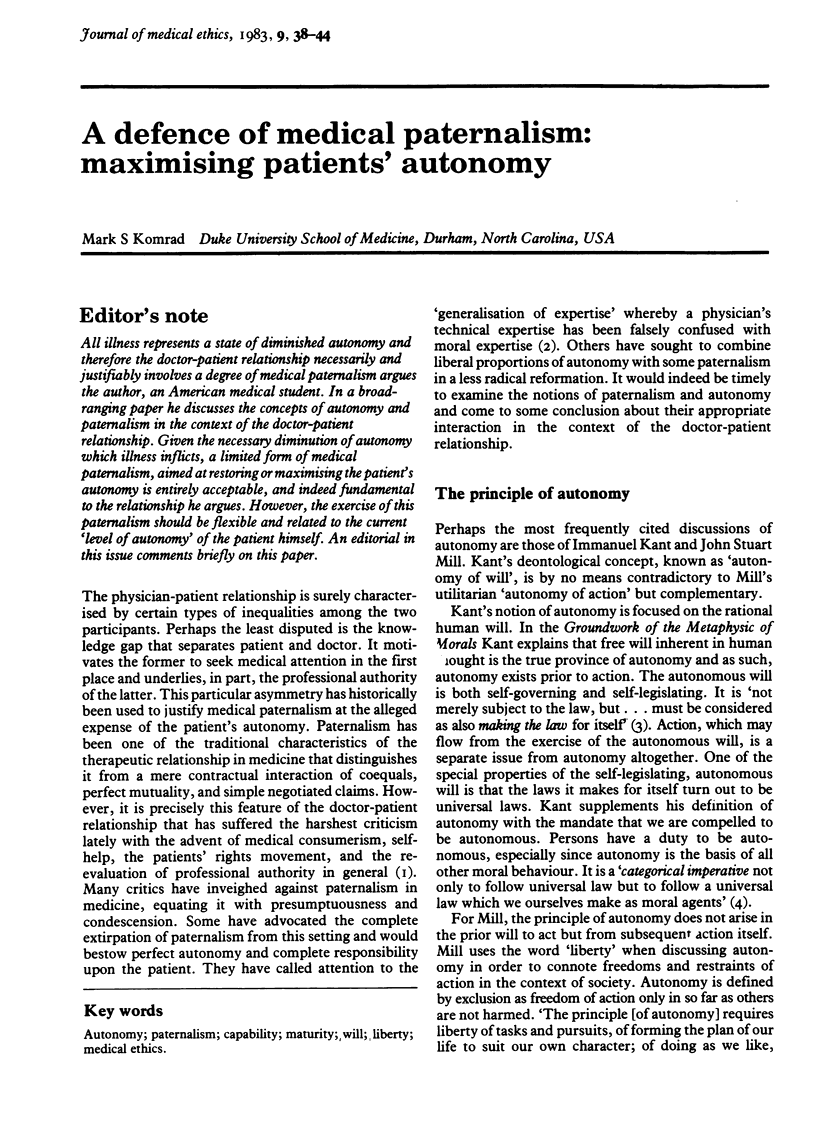
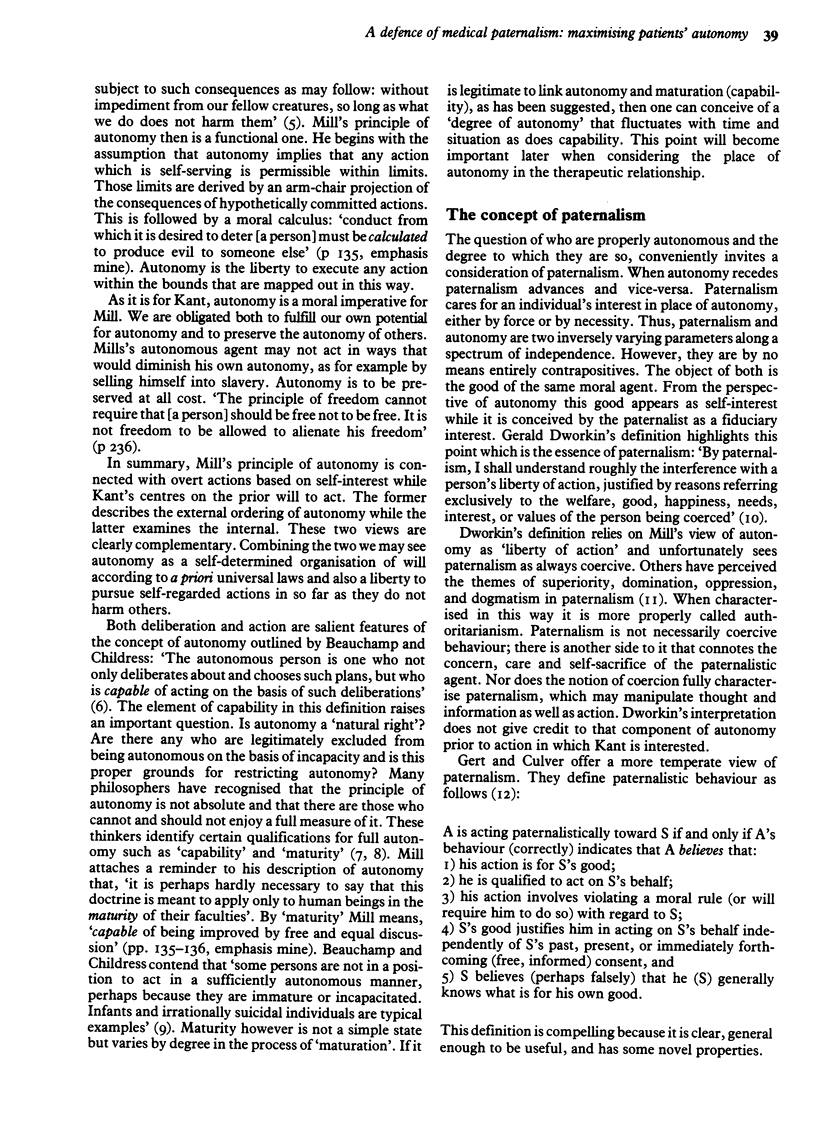
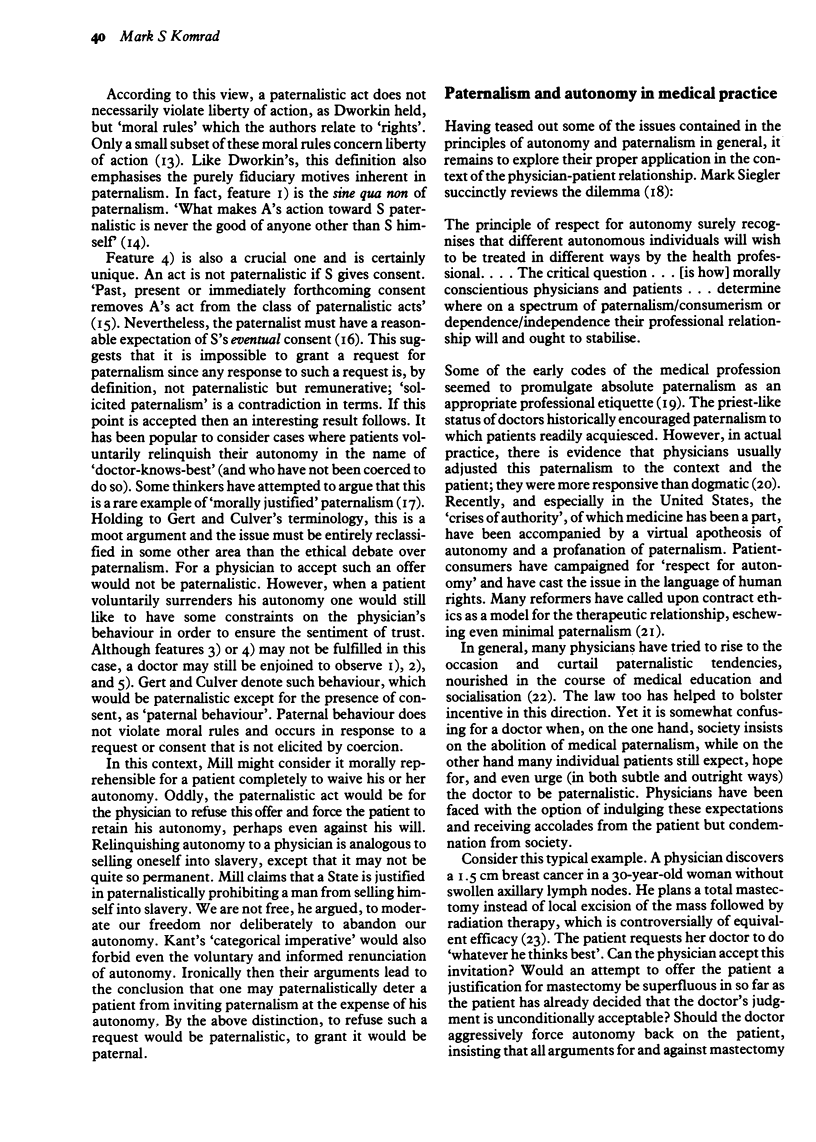
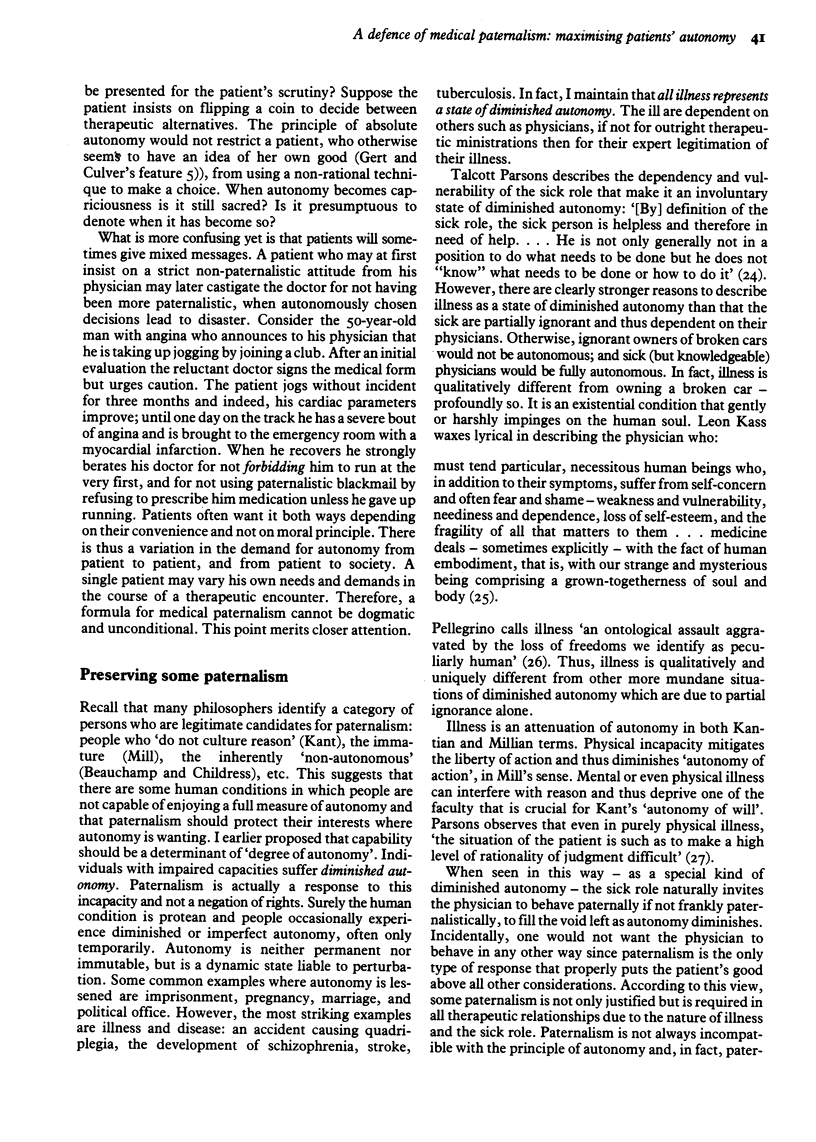
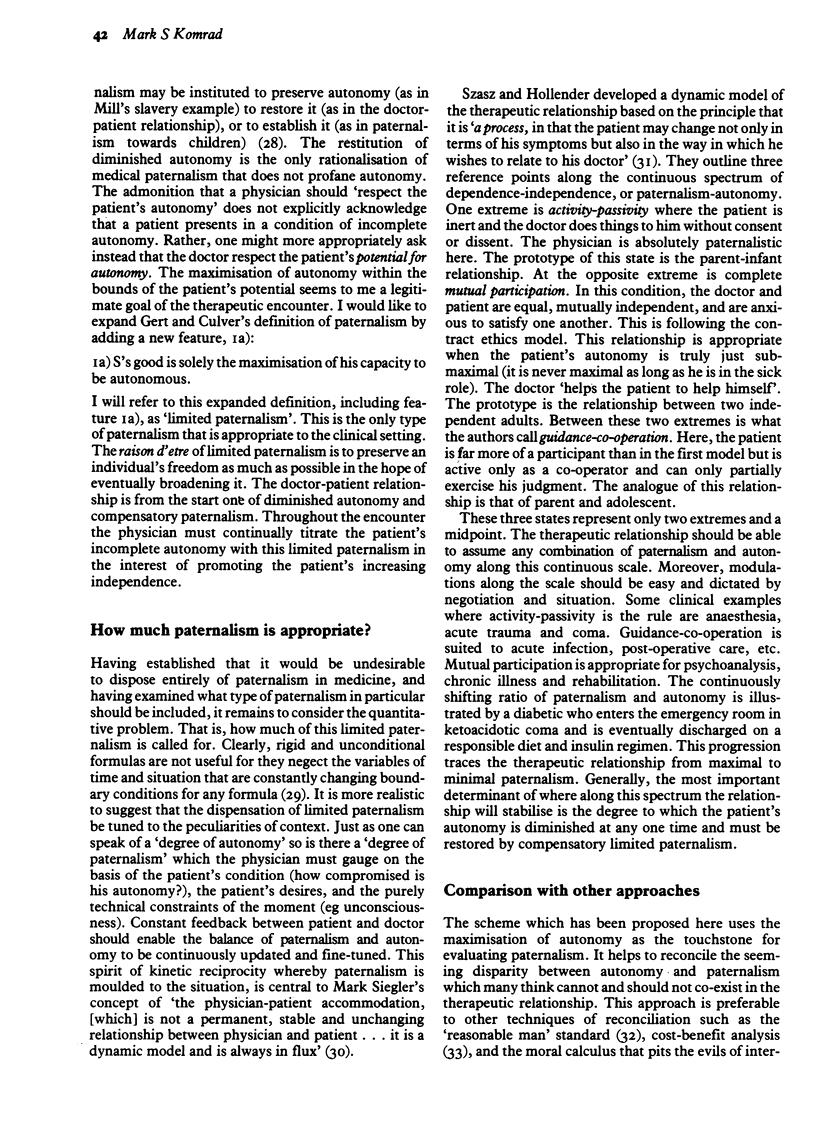
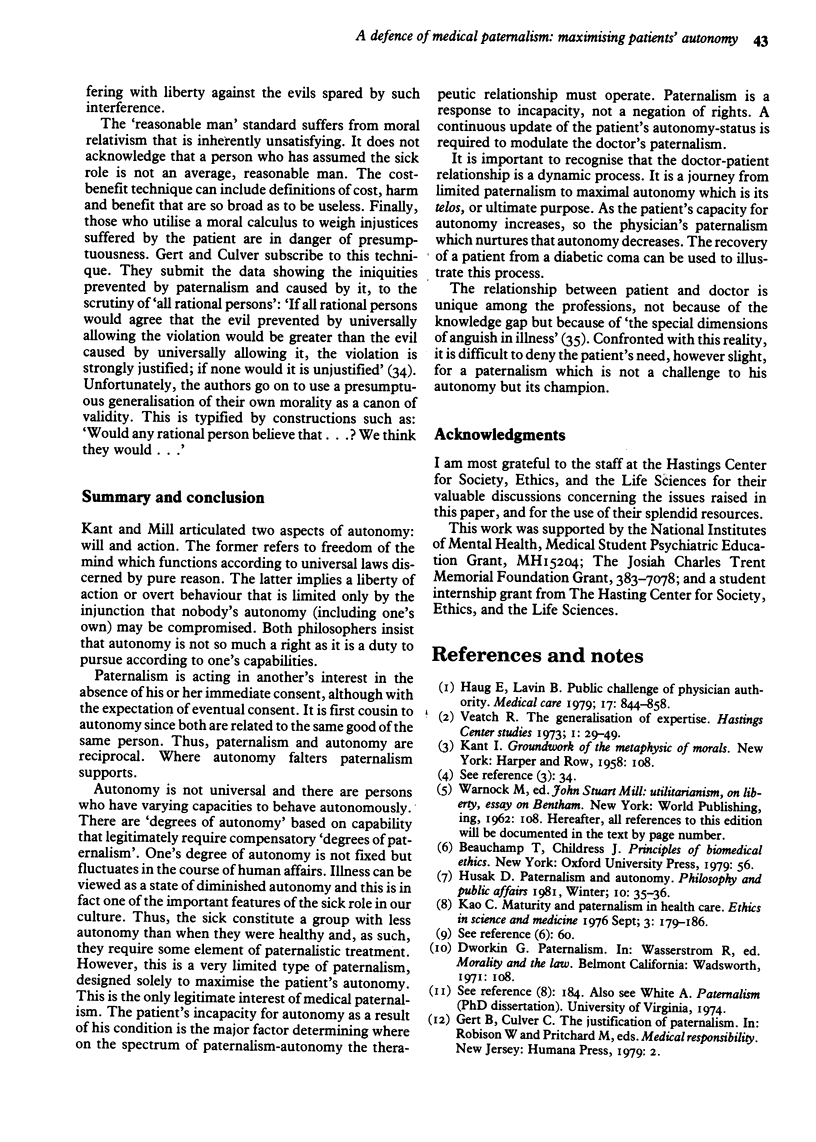
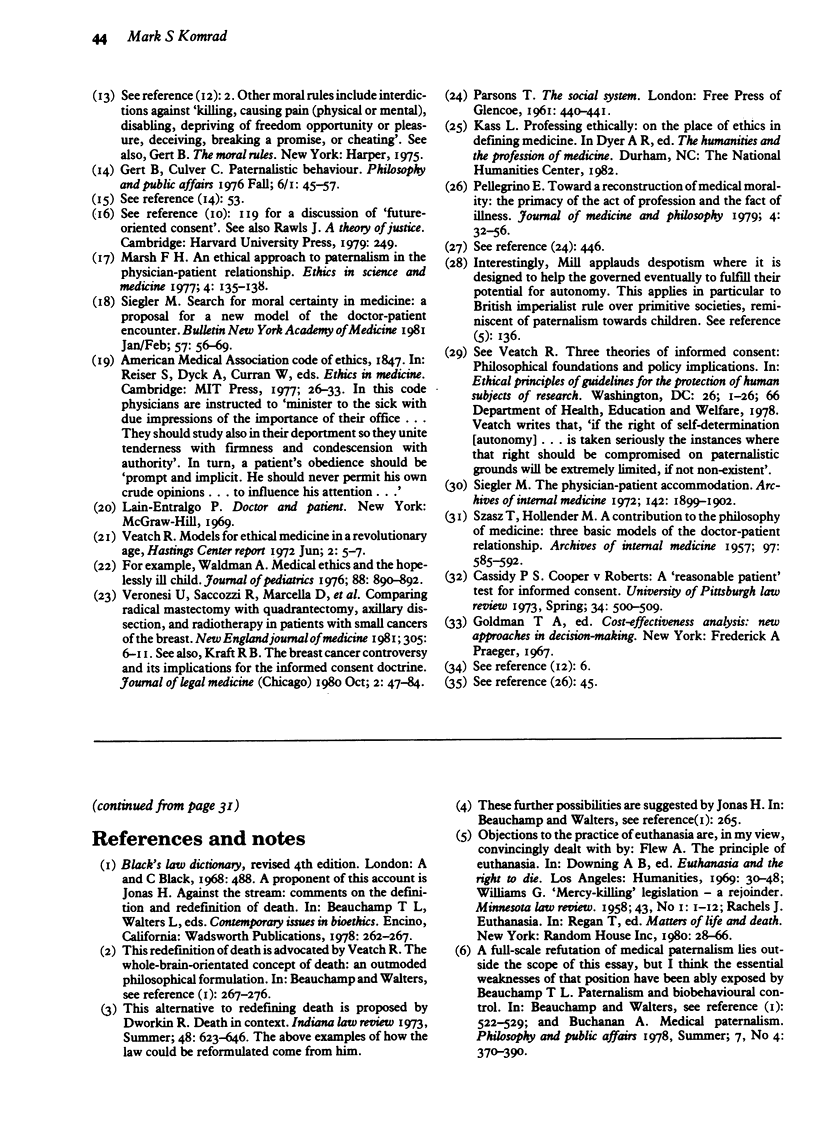
Selected References
These references are in PubMed. This may not be the complete list of references from this article.
- Cassidy Patrick Sean. Cooper v. Roberts: a "reasonable patient" test for informed consent. Univ Pittsbg Law Rev. 1973 Spring;34(3):500–509. [PubMed] [Google Scholar]
- Gert Bernard, Culver Charles M. Paternalistic behavior. Philos Public Aff. 1976 Fall;6(1):45–57. [PubMed] [Google Scholar]
- Haug M. R., Lavin B. Public challenge of physician authority. Med Care. 1979 Aug;17(8):844–858. doi: 10.1097/00005650-197908000-00007. [DOI] [PubMed] [Google Scholar]
- Kraft R. B. The breast cancer controversy & its implications for the informed consent doctrine. J Leg Med. 1980 Oct;2(1):47–84. doi: 10.1080/01947648009513321. [DOI] [PubMed] [Google Scholar]
- Marsh F. H. An ethical approach to paternalism in the physician-patient relationship. Ethics Sci Med. 1977;4(3-4):135–138. [PubMed] [Google Scholar]
- Pellegrino E. D. Toward a reconstruction of medical morality: the primacy of the act of profession and the fact of illness. J Med Philos. 1979 Mar;4(1):32–56. doi: 10.1093/jmp/4.1.32. [DOI] [PubMed] [Google Scholar]
- SZASZ T. S., HOLLENDER M. H. A contribution to the philosophy of medicine; the basic models of the doctor-patient relationship. AMA Arch Intern Med. 1956 May;97(5):585–592. doi: 10.1001/archinte.1956.00250230079008. [DOI] [PubMed] [Google Scholar]
- Siegler M. Searching for moral certainty in medicine: a proposal for a new model of the doctor-patient encounter. Bull N Y Acad Med. 1981 Jan-Feb;57(1):56–69. [PMC free article] [PubMed] [Google Scholar]
- Waldman A. M. Medical ethics and the hopelessly ill child. J Pediatr. 1976 May;88(5):890–892. [PubMed] [Google Scholar]


